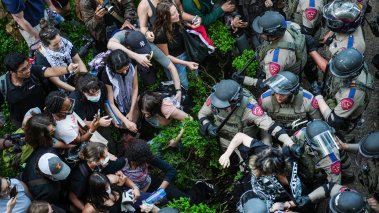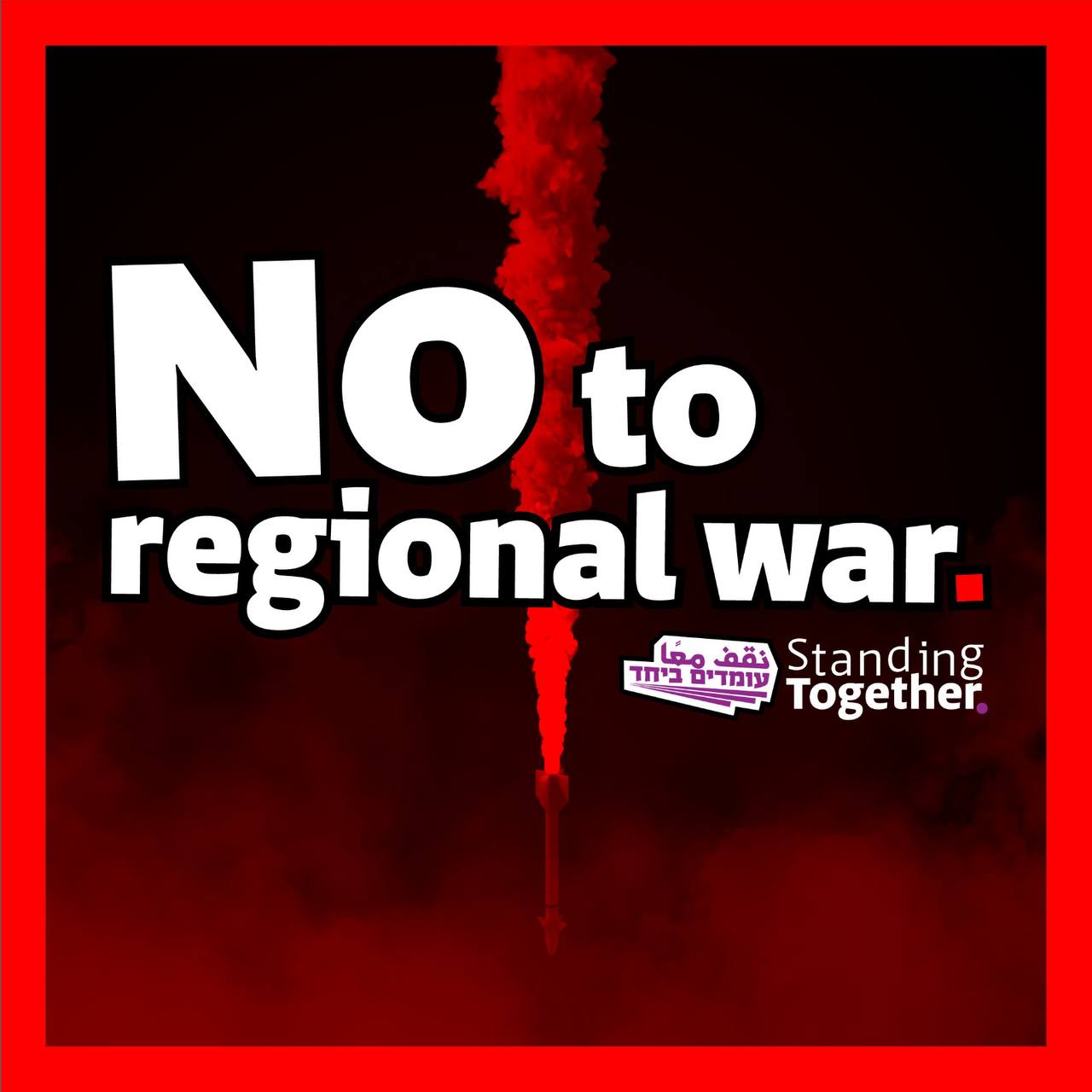A message from the Foundation for Individual Rights and Expression:
Here’s what students need to know about protesting on campus right now
As Israel/Gaza campus protests spread nationwide, FIRE answers questions about students’ expressive rights.
by FIRE
April 25, 2024
Student protest is a proud democratic tradition on our college campuses.
For generations, college students have engaged in protest to express their views, to actively participate in the public conversation and, in doing so, to draw wider attention to causes they care about. As tensions on U.S. campuses have ramped up in recent weeks, sparked by the October 7 Hamas attacks on Israel and subsequent war in Gaza, it’s no surprise that student protests have also proliferated.
We’ve seen many students engage in First Amendment-protected peaceful protests. We’ve also seen severe campus disruptions and even isolated acts of violence — particularly over the past few days. Now, hundreds of students across the country have taken to their campuses to protest institutional engagement with Israel or to show solidarity with students at Columbia University, who were arrested last Thursday for protesting in the form of a round-the-clock encampment.
In the latest news, state troopers acting under Texas Gov. Greg Abbott’s direction arrested at least 50 demonstrators at the University of Texas at Austin. This comes after a March 27 executive order from Gov. Abbott, in which he singled out the Palestine Solidarity Committee, the same group that organized yesterday’s protest, for discipline in the event that the group violated campus speech policies designed to “address the sharp rise in antisemitic speech.”
If you are a student or faculty member on campus and believe your rights have been violated, submit a case here and we will get back to you within 24 hours.
The ability to distinguish between peaceful protest, civil disobedience, and genuine misconduct is as important now as ever.
To be clear: FIRE takes no stance on the content of the speech we defend. Time and again, both recently and throughout our 25 years defending student rights, we’ve defended the rights of pro-Palestinian and pro-Israeli speakers alike. Yet we’ve always drawn a distinction between protected speech and unprotected conduct: The former reflects the core purpose of a functioning university; the latter undermines it.
Students should know their rights. We hope this Q&A will equip students to speak freely.
I go to a public college. Can I protest on campus?
Yes. Public universities are government entities bound by the Constitution and students on public campuses have free speech rights protected by the First Amendment. Depending on where, when, and how you protest, public universities can set some reasonable, narrowly-tailored limits on your protest, but they cannot limit the views you express. (More on “time, place, and manner” regulations below.)
I go to a private college. Can I protest on campus?
Probably. Even though private institutions are not required to honor constitutional rights (which only apply to government actors, like public universities), the vast majority of private colleges promise their students the right to free speech. Schools with a religious or military-related mission sometimes prioritize other values over free expression, meaning your rights at those schools may be more limited. Be sure to check your student handbook or FIRE’s Spotlight Database to learn about your rights and your school’s campus demonstration rules. If your college promises you the right to protest, you should insist the administration keep that promise.
If you are a student journalist seeking legal resources, call FIRE’s 24-hour Student Press Freedom Initiative hotline at 717-734-SPFI (7734) for help.
Are all forms of protest protected?
The First Amendment protects your right to speak your mind with only limited exceptions. But public colleges (and private ones with strong free speech protections) are allowed to maintain reasonable time, place, and manner restrictions on student speech in public areas of campus. These regulations must be viewpoint- and content-neutral rules on where, when, and how you can demonstrate on campus, in order to prevent disrupting the educational environment. Even in open, outdoor areas where campus protests are common, colleges might restrict some or all use of amplified sound, setting up tables or other structures, camping, and overnight protests. To be constitutional, those rules must apply to everyone, no matter their viewpoint and even when they’re not trying to convey a message at all.
For example, a college can prohibit loud amplification near school buildings during hours that classes are in session. But the rule has to be applied even-handedly. The school can’t allow the College Republicans to use a megaphone but forbid the College Democrats from doing so—or vice versa. Keep in mind that these rules also have to be reasonable. It’s unlikely reasonable to, say, limit all demonstrations to a tiny corner of campus on weekdays between 4:00 p.m. and 5:00 p.m. to keep campus running smoothly.
What forms of protest are not protected?
The First Amendment does not protect unlawful conduct. If you engage in conduct while protesting that violates the law — such as violence, assault, vandalism, or underage drinking — you can face arrest and/or campus disciplinary proceedings. Other unprotected conduct (including speech) that can lead to arrest or disciplinary action includes: True threats and intimidation
Incitement
Discriminatory harassment
Substantially disrupting events or deplatforming speakers
For a more detailed explanation of the First Amendment’s boundaries, check out this article by FIRE Legal Director Will Creeley.
Is civil disobedience free speech?
Civil disobedience is nonviolent unlawful conduct undertaken intentionally as a form of protest. Examples might include occupying a campus building or participating in a “die-in” that blocks traffic on a campus street. Acts of civil disobedience may strike onlookers as powerful because they reflect belief strong enough to violate existing law or policy. But students who engage in civil disobedience should realize that breaking the law — or campus policy — may result in consequences. And that price may include facing legal or institutional punishment by their college or university.
What about encampments? Can I join one on my campus?
If you are a faculty member at a public college or university, call FIRE’s Faculty Legal Defense Fund hotline at 254-500-FLDF (3533) if you fear your academic freedom or right to free speech is in jeopardy.
In recent days, a large encampment in the heart of the Columbia campus has spawned similar demonstrations at other colleges and universities. Columbia’s encampment received national media attention first for its size, and subsequently due to the university’s decision last week to suspend and arrest protesters who refused to leave it.
Even in open, outdoor areas of campus where protest is typically allowed, universities can still regulate large gatherings and overnight camping. Such regulations on protest or use of grounds typically appear in student handbooks or other policy documents.
In short, colleges can regulate around-the-clock encampments, even removing or arresting protesters who refuse to leave them. Students occupying campus spaces in violation of reasonable, content-neutral rules risk punishment. When that punishment is viewpoint-neutral, proportional, and in keeping with past practice, it does not violate expressive rights.
No. Even though the police or college officials can remove or punish you for disruptive activity like blocking traffic or interrupting classes, they can’t do so because they don’t like your message or point of view. Keep an eye out for uneven enforcement of ostensibly neutral rules in ways that target only controversial speech.
For example, your college shouldn’t punish you or your student group more harshly than other groups in similar circumstances because administrators found your message upsetting, offensive, divisive, or because it drew ire, demanded extra security, or prompted counter-protest. And even in cases where punishment is warranted, students remain entitled to meaningful due process rights.
The police must use proportional and reasonable force to disperse protests that cross into unprotected conduct, such as those that turn violent; violate the law; violate reasonable time, place, and manner restrictions; or are substantially disruptive.
Is my right to protest the same indoors as outdoors?
No. While outdoor areas of campus have been viewed as traditional public forums where speech is entitled to significant protection and fewer limitations, courts have not viewed indoor spaces the same way. Some institutions, through policy or practice, create limited public forums in certain indoor areas, but colleges typically have significantly more authority to regulate indoor spaces.
Because of concerns about disruption, noise, and even fire safety, colleges may generally impose more restrictive rules on what students can do inside buildings. By contrast, colleges have very little justification for suppressing a peaceful student protest on the quad or in other open, public areas of campus — and the law often backs up students in those circumstances.
Yes! The authorities tend to be better behaved (in a legal sense) when video cameras are rolling. And if you are detained or arrested, a video can be the evidence you need to get out of the situation as fast as possible. Do all recording openly. Some states restrict recording that happens without someone’s knowledge.
Absolutely. Know your rights, insist they are respected, and be aware that you may be better educated on those rights than campus administrators or police.
For example, a number of public colleges across the country have policies limiting all demonstrations to small or out-of-the-way “free speech zones,” even though these zones rarely hold up in court. Politely but adamantly insisting that you have the right to be somewhere may be effective, especially if you or a member of your group is recording the interaction.
You should be allowed to engage in expressive activities — like holding up a sign, leafleting, or petitioning for signatures — by yourself or in groups without a permit in outside areas of campus open to all students. If you are not disrupting classes or blocking people or traffic, your activity should be protected by the First Amendment or private colleges’ similar policies.
Colleges sometimes have overly restrictive policies forbidding all expression without a permit, or policies against “solicitation” that they use to prevent all leafleting and petitioning. If you come across such policies, they may be unlawful, and you should let FIRE know.
Absolutely not. While public colleges (and private ones with strong free speech protections) may impose reasonable time, place, and manner restrictions on protests to ensure there is no disruption to the functioning of the college, these policies may not unreasonably restrict the right to peacefully protest.




















